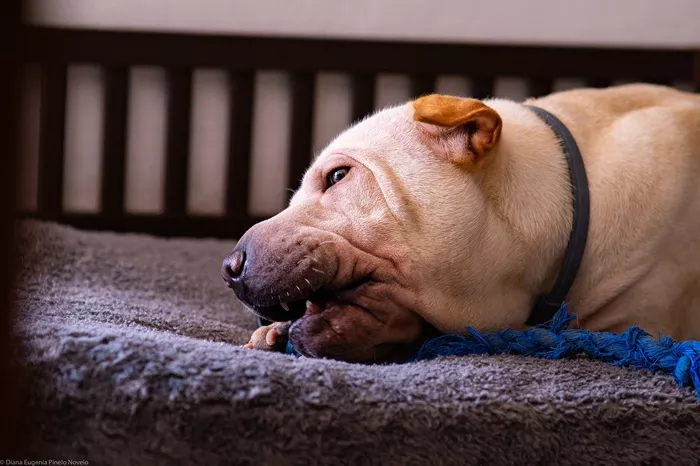Frida, the exuberant Cane Corso, was not just a beloved pet but a key participant in advancing the fight against osteosarcoma, a deadly bone cancer that impacts both dogs and humans. Through her involvement in a clinical trial at Virginia Tech’s Animal Cancer Care and Research Center (ACCRC), Frida’s life and contributions are now part of a groundbreaking effort to improve cancer treatment.
Frida’s journey began unexpectedly when she joined the Bourland family of Baltimore. While initially appearing calm and docile as a puppy, Frida grew into a spirited, independent dog, known for her playful nature and large presence. But when she began limping, the Bourlands learned that the cause was much more serious: Frida had osteosarcoma, a painful and aggressive form of bone cancer.
Undeterred, the Bourlands sought the expertise of the ACCRC, where Frida joined a clinical trial led by Dr. Joanne Tuohy, a surgical oncologist. The trial explored innovative methods of treating osteosarcoma, including histotripsy, a technique that uses focused ultrasound to target tumor cells. Unfortunately, Frida’s tumor was too large for this treatment, and she underwent an amputation to remove her affected limb. Despite this, Frida continued to participate in the trial, contributing valuable data that may one day lead to earlier cancer detection through simple urine samples.
The research team, led by Tuohy, worked tirelessly not just to treat Frida but to offer emotional support to the Bourlands as they navigated the challenges of her diagnosis. This partnership exemplified the compassionate care and collaboration at the heart of the ACCRC, where veterinary experts work alongside researchers to advance cancer treatments.
Frida’s participation in the study aimed to develop non-invasive techniques for early detection of osteosarcoma metastasis, particularly in the lungs, where the disease often spreads after amputation. Through innovative methods like Raman molecular analysis of urine, the team hopes to detect cancer earlier, leading to better outcomes for both dogs and humans.
While Frida’s battle with osteosarcoma eventually ended with her passing in November 2024, her story remains a beacon of hope. Her legacy lives on, not only through the data she provided for the ongoing clinical trials but also in the way her life and treatment showcased the importance of quality care and collaboration in veterinary oncology.
The Bourlands, though heartbroken by their loss, find comfort in knowing that Frida’s journey has contributed to a broader mission. “Even having suffered this loss,” Ian Bourland reflected, “it gives us meaning to have been part of this larger trajectory.” Frida’s participation in cancer research will help improve treatments for future pets and potentially offer insights into human cancer care, ensuring that her impact extends far beyond her years.
Related topics:
7 Reasons To Give Your Senior Dog Turkey-Tail Mushrooms
Dog Found Shaking in Ditch ‘Blows Up the Internet’


